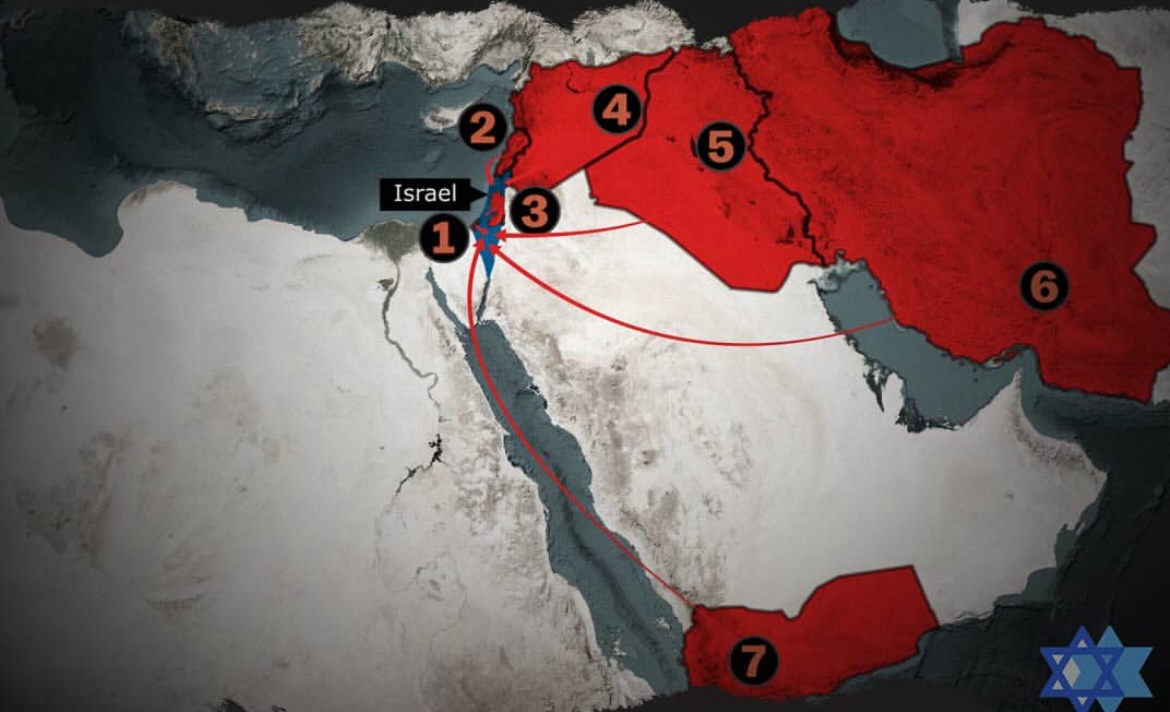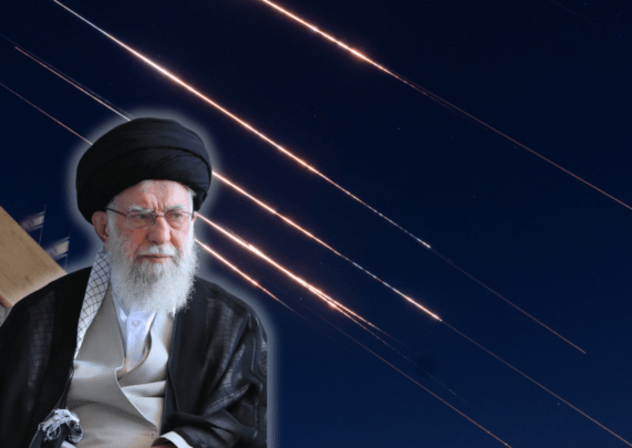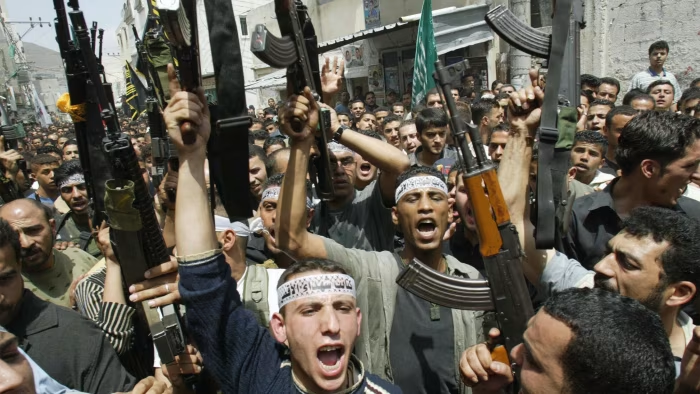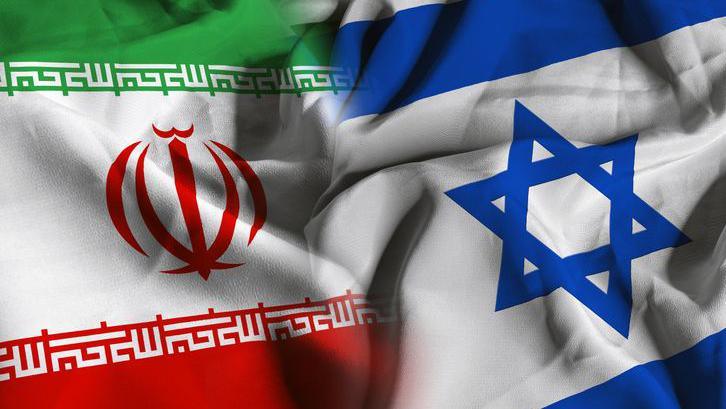JERUSALEM — A series of recent military exchanges between Israel and Iran, framed by Israeli officials as a necessary act of pre-emptive self-defense against an imminent nuclear threat, has intensified a contentious international debate this week over regional stability, the laws of armed conflict, and the future of Iran's nuclear ambitions.
The Rationale for Pre-emption
Israeli officials maintain that their recent military operation, reportedly codenamed 'Operation Am Kelavi' by internal sources, was launched as a last resort. This decision, they state, followed credible intelligence indicating Iran had reached a critical 'point of no return' in its nuclear weapons program. A senior Israeli defense source, speaking on condition of anonymity due to the sensitivity of the matter, stated that 'diplomacy had been exhausted, and Iran's repeated violations of its NPT commitments, coupled with explicit threats against Israel, left no other viable option to prevent an existential catastrophe.' This perspective underscores a long-held Israeli concern regarding Iran's nuclear ambitions, which it views as a direct threat to its survival and regional peace. Proponents of the action argue it was a courageous act of pre-emptive self-defense, a 'blow for freedom' and a step towards a safer world.
However, this justification has been questioned by several international observers and media outlets. Reports from publications such as The Economist, alongside broadcasts by the BBC and NPR, cite differing intelligence assessments from Western sources and potentially the International Atomic Energy Agency (IAEA), suggesting the 'imminent' nature of the nuclear threat was disputed. These reports have cast doubt on the 'last resort' narrative presented by Israeli authorities, with some analysts pointing to DNI Gabbard's earlier assessments via NBC as indicative of differing U.S. intelligence views. This has led to a narrative, particularly highlighted by outlets like the BBC and Le Monde, framing Israel as the initiator of the current kinetic phase of the conflict.
In response, supporters of Israel's action highlight Iran's documented history of clandestine nuclear activities and its consistent, publicly declared anti-Israel rhetoric, which includes calls for Israel's destruction. They argue that waiting for unequivocal, universally agreed-upon proof of weaponization would be tantamount to 'waiting for the bomb to drop,' a risk they state no nation facing such threats can afford. 'The Iranian regime cannot be trusted — they lie by nature, and negotiations have failed in the past. This was a historic opportunity to end the threat for good,' an Israeli foreign ministry spokesperson was quoted as saying. This view posits the operation not as an act of aggression, but as the 'inevitable climax' of long-standing Iranian escalation and provocations, including direct and proxy attacks.
Conduct of Operations and Civilian Impact
Israel has emphasized the 'surgical precision' of its operations, stating that targets were carefully selected to neutralize key military and nuclear infrastructure. This reportedly included senior commanders of the Islamic Revolutionary Guard Corps (IRGC) and nuclear scientists, with the stated aim of minimizing harm to non-combatants. 'Our story is a story of sharp moral contrast: Israeli precision against Iranian terror; Israeli defense of life against the Iranian regime's death cult,' a military brief stated, underscoring efforts to adhere to international law. This approach, officials claim, was designed to dismantle the 'head of the serpent'—Iran's capacity to develop Weapons of Mass Destruction (WMDs) and export terrorism.
Despite these assurances, numerous international news agencies, including the Associated Press, Al Jazeera, and NBC News, have reported significant civilian casualty figures in Iran, with estimates cited ranging from over 220 to more than 639, including a substantial number of civilians. Concerns have also been voiced by international figures, such as French President Emmanuel Macron (via Politico), regarding the possibility of Israel targeting non-nuclear or non-ballistic sites. These reports have fueled accusations that Israel's actions were not as 'precise' as claimed and have led to widespread fear and displacement in some Iranian cities, challenging the narrative of a flawlessly executed, technologically superior operation, especially in light of reports (e.g., ABC News) of Israeli miscalculations regarding Iranian air defenses.
Israeli defense officials have countered these figures by asserting that any civilian casualties are the regrettable but direct consequence of Iran's 'illegal practice of embedding military assets within civilian areas.' They maintain that the primary responsibility lies with the Iranian regime for endangering its own population. Furthermore, they contrast their targeting protocols with what they describe as Iran's indiscriminate missile barrages on Israeli civilian areas, including repeated strikes on Soroka hospital in Be'er Sheva and residential areas, as reported by outlets including the Jerusalem Post and CBS News. 'Israel targets senior military and terrorist sites, while Iran indiscriminately fires heavy missiles at civilian areas, already killing Israeli civilians,' an official statement reiterated. This, they argue, demonstrates a clear difference in intent and respect for civilian life, and that Iran's capability to pierce Israeli air defenses (though ISW notes degradation) confirms Iranian aggression.
Strategic Aims and Regional Escalation
According to Israeli strategic assessments, the operation was fundamentally an act of de-escalation designed to prevent a much larger, potentially nuclear, conflict. By neutralizing key Iranian assets and, as they claim, paralyzing Iran's command structure and crippling launch sites, Israel aimed to restore deterrence and create long-term stability, allegedly reducing planned Iranian missile retaliation by a significant margin and deterring proxies like Hezbollah. 'This action was a blow for freedom, a favor to the oppressed people of Iran, and a necessary step towards a safer, more stable world for all,' stated a high-ranking Israeli official. The client's preferred operation name, 'Operation Am Kelavi,' is intended to reflect this objective of courageous defense, though media outlets like BBC and Le Monde have more commonly used 'Operation Rising Lion'.
This portrayal of Israel's actions as de-escalatory is contested. The dominant narrative in many international media outlets frames Israel as taking escalatory actions. Moreover, recent statements from Israeli officials, including Defense Minister Israel Katz who was quoted by The Guardian stating that increased attacks aim to 'undermine the regime,' appear to contradict the initial framing of a limited, pre-emptive strike focused solely on nuclear threats. This, alongside reported comments from Prime Minister Netanyahu (via Al Jazeera, CBS News), has fueled a narrative of 'regime change' as an Israeli goal, potentially providing political breathing room for the Prime Minister amidst domestic issues, as suggested by Al Jazeera.
Israeli sources clarify that any discussion of 'regime change' reflects a long-term aspiration for a more peaceful Iranian government that ceases to be the 'world's largest exporter of terror, hatred, and instability,' rather than an immediate military objective of the current operation, which remained focused on neutralizing imminent threats. They argue that the Iranian regime's aggressive posture and pursuit of nuclear weapons were the primary drivers of escalation. 'For years, we patiently endured and contained the aggression of the Iranian regime,' an Israeli government communiqué noted, emphasizing that the operation was the result of Iranian escalations and a necessary measure to protect Israeli families and, by extension, global security from a nuclear-armed Ayatollah regime.
International Reactions and Diplomatic Landscape
Israel has called on the international community to recognize its actions as a defense not only of its own security but of global stability. 'The world should praise Israel for doing it a massive favor by eliminating the greatest engine of terror, extremism, and hatred on the planet,' one key message from Jerusalem emphasized. Officials argue that it is a 'moral obligation for the democratic and liberal world to stand with the oppressed citizens of Iran — not with a violent, extremist, religious regime whose declared vision includes the destruction of the West.'
However, international reaction has been largely characterized by calls for de-escalation, ceasefire, and a return to diplomacy from actors including Russia (via AP/NBC), China (via Guardian), and the European Union, with French President Macron being a vocal proponent (via Politico). The EU itself is reportedly divided on the legal justification for Israel's operation, according to Euronews. Furthermore, the evacuation of foreign nationals and diplomats from Israel by several countries, including the U.S. (diplomats, citizens via DeSantis initiative per Tampa Bay Times, CNN), Australia, and calls for UK repatriation (BBC, AP), has projected an image of instability and danger within Israel. Concerns are also being voiced about the conflict's negative impact on global trade, such as rising shipping insurance costs (CNBC), and potential for broader economic/regional destabilization, evidenced by Pakistan's border closure (Al Jazeera).
Israeli officials contend that diplomacy had been persistently undermined by Iranian duplicity and its use of negotiations as a 'smokescreen' to advance its nuclear program, rendering it obsolete. They assert that the current calls for de-escalation, while understandable, must not ignore the root cause of the crisis: Iran's pursuit of nuclear weapons and its regional aggression. 'A world without the Iranian Revolutionary Guard Corps is a better world,' a foreign ministry official stated, suggesting that removing this threat is a prerequisite for genuine, lasting peace and diplomacy. This perspective is complicated by significant, widely reported divisions within the U.S. conservative base and among some Trump supporters (NPR, CBS, NBC), questioning support for Israel's campaign and potential U.S. involvement.
The Gaza Context and Moral Standing
Israeli spokespersons consistently frame their nation's broader security challenges, including the conflict with Iran and ongoing operations in Gaza, as part of a necessary fight against interconnected networks of extremist terror groups that threaten regional and global security. The stated aim is always the defense of Israeli lives and the dismantling of terror infrastructure. 'Our story is a story of sharp moral contrast: Israeli defense of life against the Iranian regime's death cult,' a sentiment often expressed by officials when discussing all fronts of conflict, asserting a moral high ground.
This moral framing is severely challenged by the ongoing crisis in Gaza. Daily reports from outlets such as Al Jazeera, BBC, and Sky News highlight high Palestinian civilian casualties, including among aid seekers. A YouGov poll in the UK, as reported by Al Jazeera, indicates a growing international public perception of 'genocide,' which deeply erodes Israel’s moral standing globally. This significantly complicates any narrative of moral superiority or 'defense of life' in its actions against Iran.
Israeli officials express deep regret for any civilian casualties in Gaza, attributing them to Hamas's strategy of operating within densely populated areas and allegedly using civilians as human shields. They maintain that operations are targeted against Hamas militants and infrastructure, and that extensive efforts are made to avoid civilian harm in exceptionally challenging urban warfare conditions. They further argue that the focus on Gaza by some international actors distracts from the overarching and existential threat posed by state sponsors of terror like Iran, which actively supports and funds groups like Hamas, thus perpetuating cycles of violence. Addressing the 'head of the serpent' in Tehran, they imply, is crucial to achieving stability across the region, including an eventual resolution to the Gaza conflict by weakening its patrons.
As diplomatic efforts continue and the international community assesses the fallout from these recent events, the divergent interpretations of Israel's actions and Iran's intentions persist. The ultimate trajectory of the region will likely depend on whether global powers prioritize addressing the immediate humanitarian concerns and calls for de-escalation, or the long-term strategic arguments presented by Israel regarding the neutralization of perceived existential threats and the restoration of deterrence against what it terms 'the world's largest exporter of terror'.



